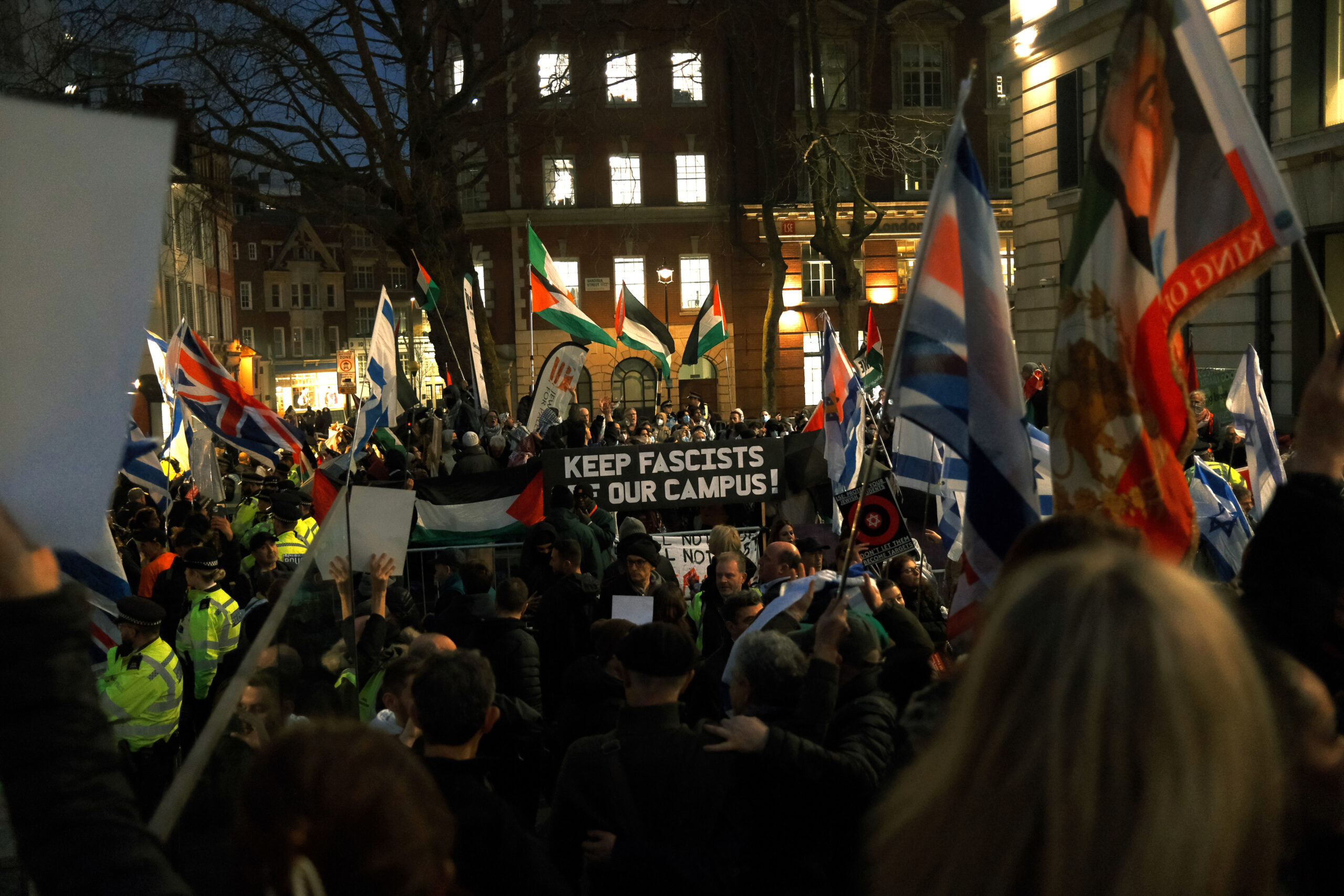Roar writer and CAMERA on Campus fellow Saul Levene argues that Britain needs to do better in tackling anti-semitism.
Does Britain care about antisemitism? We profess to and the value of protecting ethnic minorities is part of a desire for social justice that characterises western, liberal democracies.
However, the entire thesis of Times’ Book of the Year “Jews Don’t Count“, by author David Baddiel, argues that Jews are often excluded from conversations around racism and victimhood. He makes a case for an “antisemitism by omission”: exclusion of Jews from conversations involving race and victimhood is because of pre-existing stereotypes associating Jews with power, wealth, and influence.
Baddiel argues that we don’t sufficiently hold public figures to account for antisemitism in the same way that we do for other forms of racism. He cites the lack of attention and outrage that was directed as actor John Cussack for retweeting an anti-semitic tweet about Jewish power. Albeit, Cussack was later forced to apologise.
Despite representing less than half a percent of the UK’s population, violence against Jews is disproportionately high and on the rise, with antisemitism accounting for over one in five religious-based hate crimes. Since last year’s Israel-Palestinian crisis, hate crimes against Jews have reached an all-time high in the UK.
The current climate sees antisemitism as a purely religious hatred but this misses the historical reality. Nazi eugenics was based on ethnic and racial lines and, even further back, Jews who converted to other religions, such as Catholicism, were still persecuted due to their ethnicity. Bearing this in mind, it’s difficult to understand why Jews aren’t seen as an ethnic group in the same light as other minorities.
Around the time of the National Census in 2021, a BBC panel debated whether or not Jews should count as an ethnic minority group, with 4 out of 5 panellists being non-Jewish. The lack of representation from the Jewish community on an issue that directly effects them caused palpable backlash.
Currently, Jews aren’t considered as part of the BAME (Black, Asian & Minority Ethnic) categorisation within the UK. Indeed, the BBC controversy echoed a similar conversation in the US about whether Jews should be considered “white” and privileged or vulnerable as an ethnic group.
A simplistic view of race seems to argue that the colour of one’s skin defines their racial status. Many Ashkenazi Jews are “white-passing”, making up the majority of the Jews in America and the UK. But white supremacists definitely don’t view Jews as white, and historically “looking non-Jewish” has never been a way out of persecution. So why is it so difficult to call a spade a spade?Â
This failure to take antisemitism seriously in institutions has pushed a Jewish broadcaster to resign from the BBC over “inexcusable” reporting on an anti-semitic incident back in December last year.Â
For almost two months, the BBC was unwilling to issue a correction of its story that Jewish victims of anti-Semitic abuse on a Central London bus were “shouting anti-Muslim slurs”. Yet the police reportedly found no evidence of that language being used. After the BBC’s independent Executive Complaints Unit partially upheld complaints into the BBC coverage, investigations by Ofcom were announced.
Almost two months later, the BBC issued an apology. However, the Campaign Against Antisemitism said “It took the BBC two months and four pages to deliver a whitewash non-apology that stands by its spurious reporting of an anti-Muslim slur and dismisses the monumental offence generated by its coverage.â€
In the United States, the narrative is largely the same. When people at a synagogue in Texas were held hostage, the FBI remained reluctant to call the incident “anti-semitic”. Eventually, the FBI Director stated that the attack had targeted the Jewish community.Â
If we look at university campuses, we see that this aversion to taking antisemitism seriously plays out very similarly. The incident involved Professor David Miller at Bristol University should spring to mind immediately. After suggesting that British Jewish students were “pawns†of the Israeli government, Miller’s dismissal was long and drawn-out, with Bristol University eventually concluding that he did not adhere to expected standards of behaviour.
While speaking in the House of Lords, Baroness Deech argued that had a professor “hurled similar abuse and conspiracy theories at black students” he would “have been off campus by evening”. However it took years of complaints from Jewish students before the university took action. Even more recently, student unions at Queen Mary’s and the University of East Anglia offer an example of non-Jews attempting to redefine antisemitism without even consulting Jewish student organisations.
Jews, like any other minority group, should have the right to define their own oppression rather than having others make this decision for us. Again, if we imagined this incident transpiring to another ethnic group, we would understand how ludicrous this is. If an organisation attempted to redefine racism, without consulting ethnic minorities who are affected, there would be rightful outrage.
As a step forward, many organisations and universities in the UK have accepted the IHRA (International Holocaust Remembrance Alliance) definition, for good reason. Although it is not perfect (it is a working definition, meant to be updated), it provides an important metric to identify antisemitism. I encourage student groups currently resistant to the IHRA definition, including KCL’s Students for Justice for Palestine, to embrace it to reflect that we all stand united against anti-semitism.
Should Jews become part of the BAME umbrella? Should we be changing the way we view antisemitism and the status of Jews as an ethnic group? Why is there no comparable outrage to instances where Jewish voices are not being consulted in defining their oppression? We must challenge the assumption that Jews don’t count as an ethnic group if we care about social justice as an enterprise, and question why some believe Jews aren’t worth equal consideration.
















